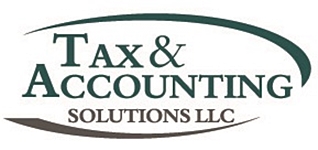The U.S. tax system is a pay-as-you-go process. Taxes must be paid as income is earned or received during the year. With the new tax laws, the way tax is calculated for most taxpayers has changed. In addition, any change in your tax situation for the year (e.g., selling stock, changing marital status, working multiple… Read More
Now that the corporate tax rate has been reduced to 21% permanently, is it a good time to incorporate your business? There is no one-size-fits-all answer to this question but there are some general guidelines to consider. The primary nontax advantage of incorporating a small business is personal asset protection. Both corporations and LLCs allow… Read More
There are many costs associated with the start-up of a business that can be deducted once your business opens. To qualify as a start-up cost, the expense must be one that you could deduct if you were already in business. Examples include travel to suppliers, training for your new employees, advertising, utilities and other pre-opening… Read More
For many of you, finding the money to pay for a new car, boat or dream vacation was as easy as tapping the equity in your home. Prior to 2018, you could use the equity in your home to make large purchases, pay expenses or consolidate debt and deduct the interest on up to $100,000… Read More
Are you an employee who incurs unreimbursed expenses? Beginning in 2018 and continuing through 2025, some expenses you could previously claim as itemized deductions won’t be allowed. Here’s a list of the more common items that are no longer deductible: Uniforms and certain work clothes Safety shoes and other safety equipment Tools needed for your… Read More
As a business owner, you most likely provide health benefits for you and your employees. Even if you do not have employees, having a health insurance policy in your business may save you money. As a self-employed taxpayer, you are allowed to deduct from your adjusted gross income, 100% of the cost of the health… Read More
There’s a rule in the tax code that allows you to exchange property you hold for business use or investment for other like-kind property and defer any tax on the gain. This was a popular strategy for business owners who wished to acquire new property without incurring a large tax liability from selling similar property.… Read More
Many of you are already aware that contributing to a qualified tuition plan, commonly referred to as a 529 plan, can be a tax-free way to save for your child’s college education. But did you know that the Tax Cuts and Jobs Act added a provision that also allows you to use a 529 plan… Read More
Have you ever thought of your home as a source of untapped income? Consider this: Your home is located in an area that has a lot of tourism or large events that attract many people. Sometimes hotel space is limited or fills quickly. You prefer to be out of town while these events are taking… Read More
The Tax Cuts and Jobs Act made some significant changes to how business owners deduct the cost of certain property. In the past, the cost of business assets was recovered through bonus depreciation, by regular depreciation or by expensing it under §179, depending on the type of property. Prior to the change in the law,… Read More

